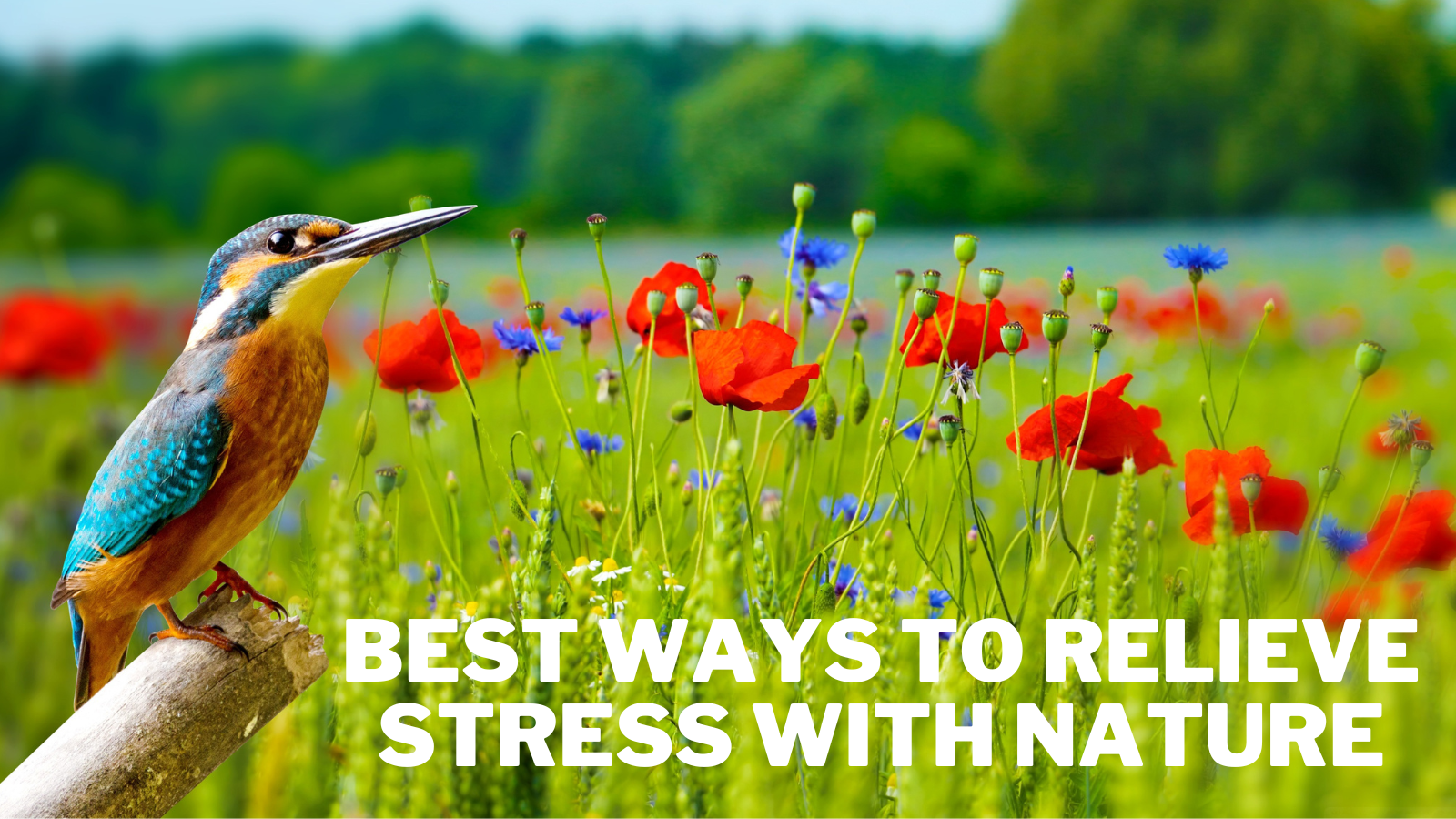Best Ways To Relieve Stress With Nature
Best Ways To Relieve Stress With Nature
Nature has a way of calming the mind and soothing the soul. Spending time in nature can affect our mental and emotional well-being.
Stress has become a common problem in today's fast-paced world. Fortunately, nature provides an effective antidote to stress.
In this blog post, we will explore some of the best ways to relieve stress with nature. From hiking in the woods to gazing at the stars, there are plenty of ways to reconnect with nature and find inner peace.
Stress can be a common problem in today's fast-paced and busy world. Thankfully, nature provides a great way to relieve stress and promote relaxation.
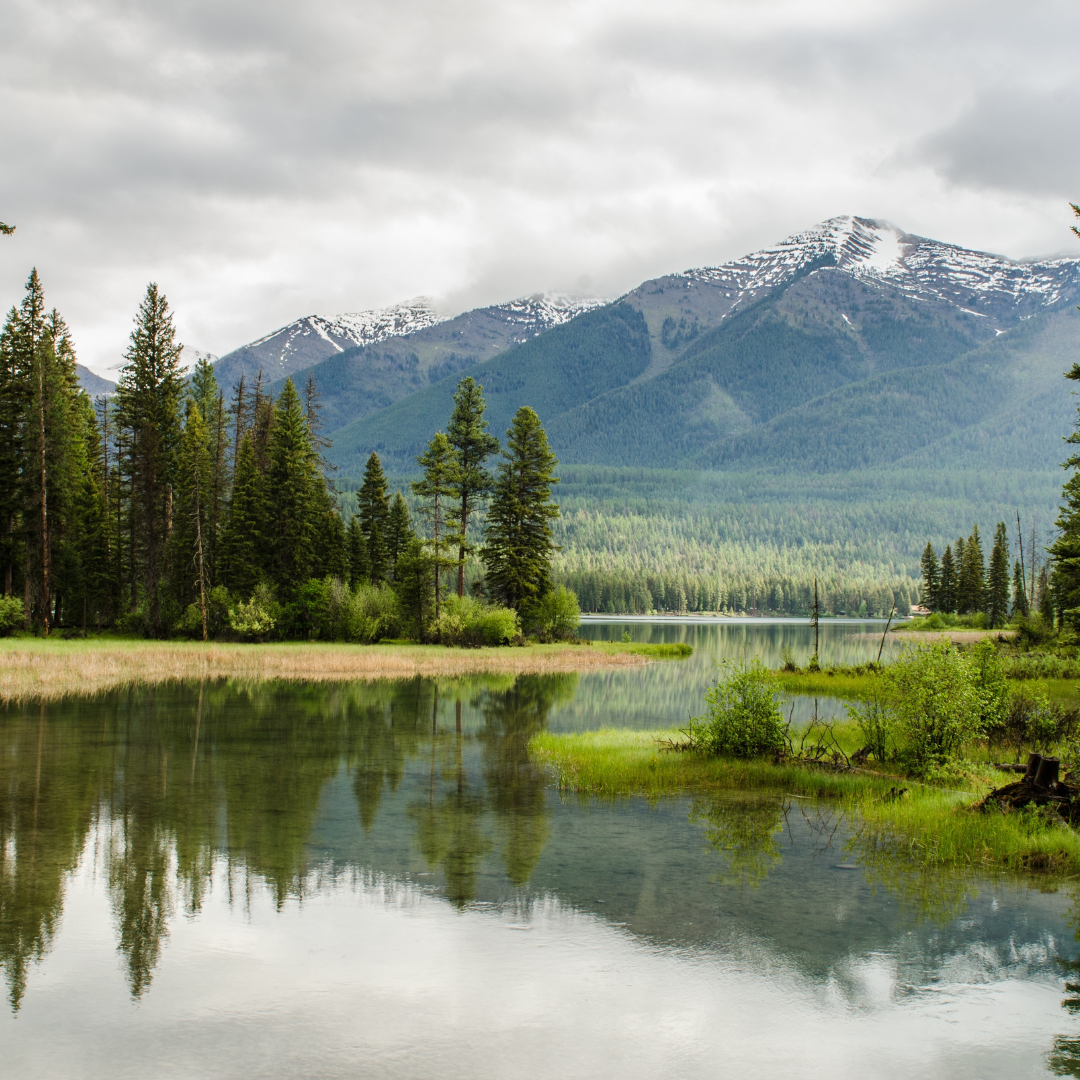
1. Spend Time In A Natural Setting
Spending time in a natural setting can be a great way to escape the hustle and bustle of daily life.
The peacefulness of a natural environment can help reduce stress and anxiety and allow you to connect with nature on a deeper level.
A park can be a great option for those who live in urban areas. Even a small garden with a few trees can provide a sense of calm and tranquillity. It can be a great place to read a book, walk, sit, and enjoy the surroundings.
For those with access to a beach, waves crashing against the shore can be incredibly soothing. The feeling of sand between your toes and the salty ocean breeze can help you feel more grounded and connected to nature.
A forest can be a great option for those who enjoy hiking or exploring nature. The smell of fresh pine and birds chirping can be incredibly calming. Walking through a forest can also be a great way to exercise and clear your mind.
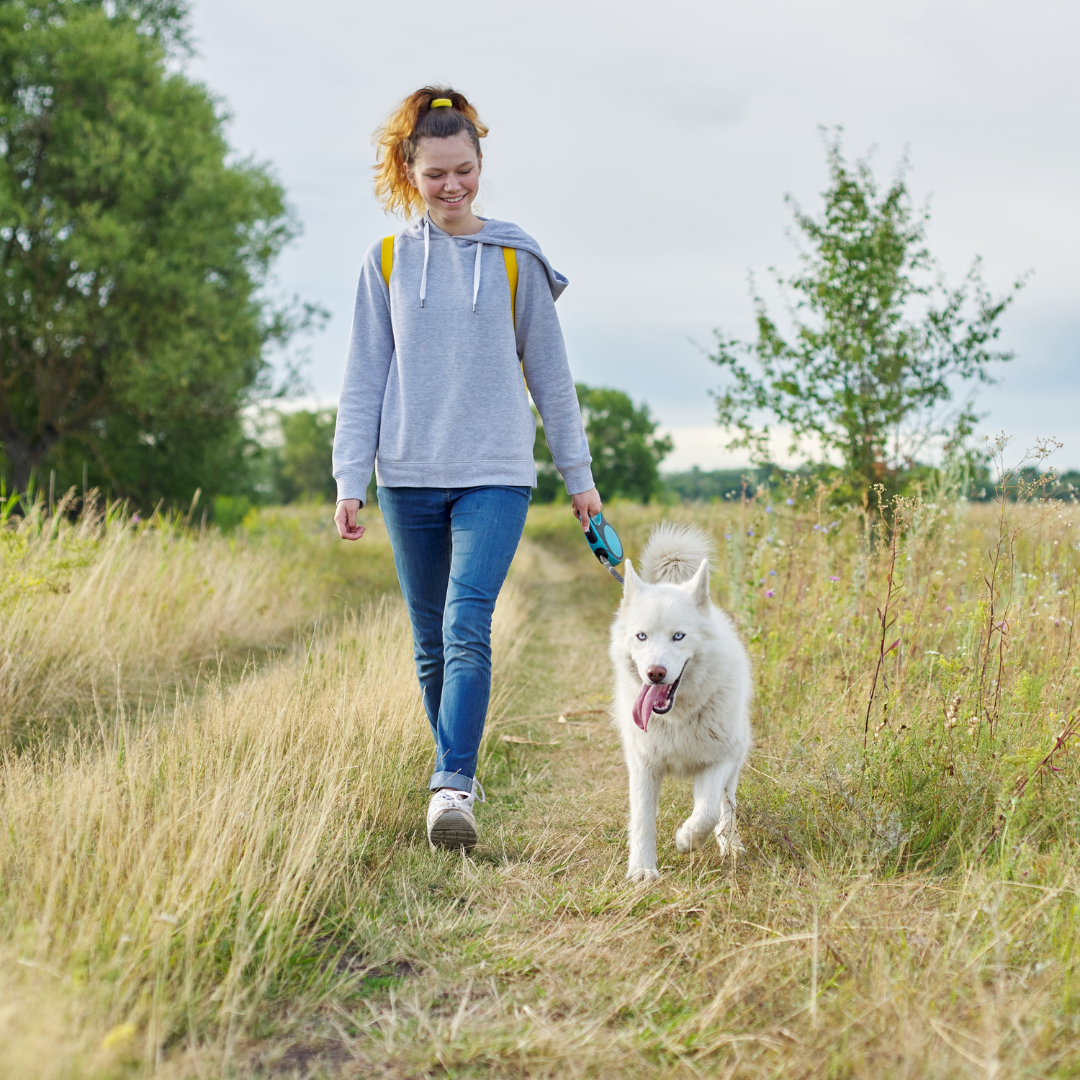
2. Go For A Walk
Walking is a simple yet effective way to reduce stress and improve well-being. Walking has even greater benefits in a natural setting, such as a park, forest, or beach.
Spending time in nature can help lower cortisol levels, the hormone associated with stress. When too high, cortisol levels can lead to various negative health effects, such as anxiety, depression, and physical illness. Walking in nature can mitigate these effects and promote a more positive outlook.
The stress-reducing benefits of walking in nature can also help to improve mood and boost creativity.
Research has shown that spending time in natural settings can increase feelings of happiness, decrease symptoms of anxiety and depression, and improve cognitive function.
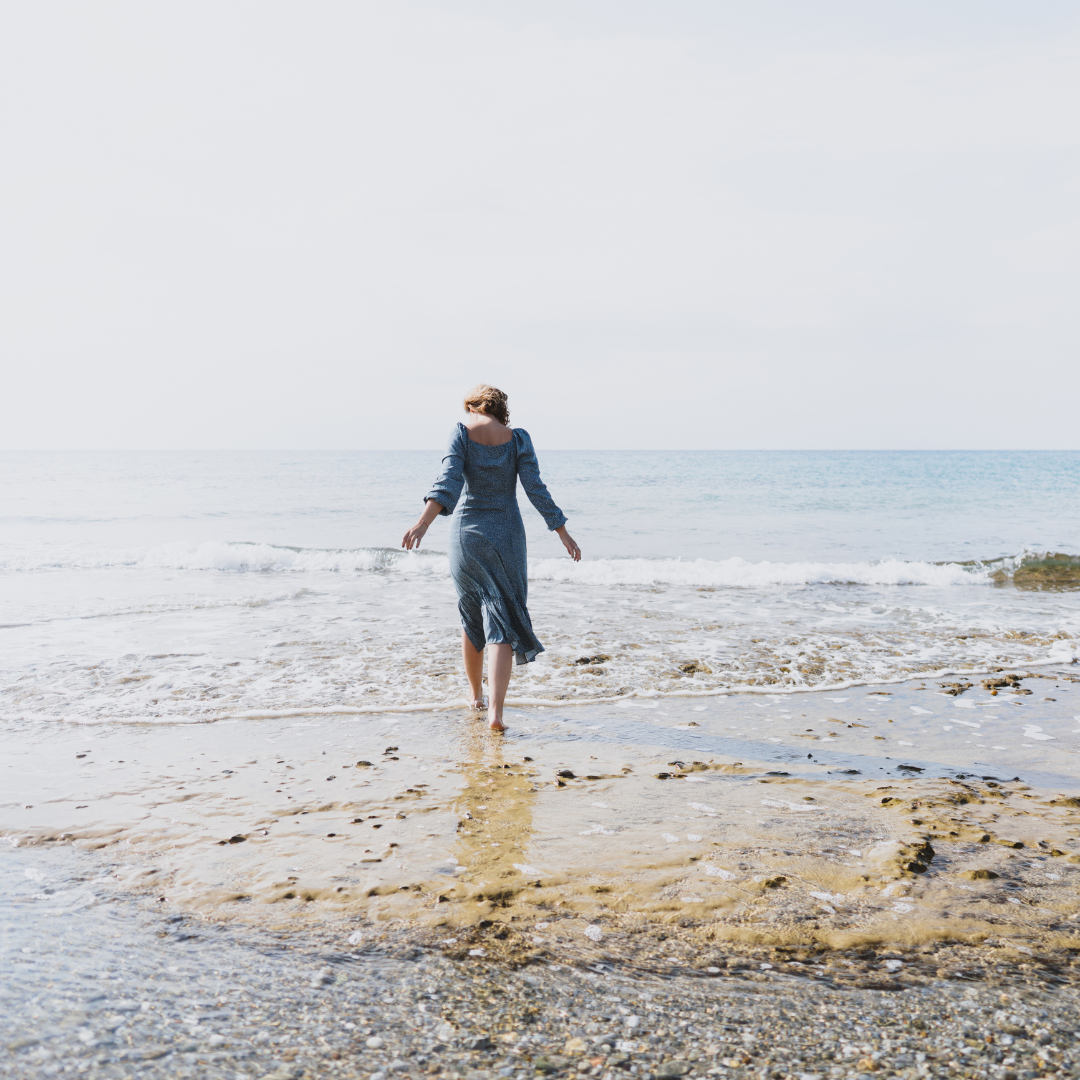
3. Practice Mindfulness
Mindfulness is a technique for being fully present at the moment without allowing one's mind to wander to the past or the future.
It involves paying attention to your thoughts and feelings without judging them and being aware of your surroundings and physical sensations.
You can practice mindfulness anywhere, but it's particularly effective in a natural setting. Being in nature can help to quiet your mind and reduce stress and anxiety.
To practice mindfulness in nature, find a quiet spot to sit or stand comfortably. Take a few deep breaths to relax and focus on your breath. Let go of any thoughts or distractions and be present.
Notice the sights, sounds, and smells around you. Pay attention to the sensation of the sun on your skin or the feel of the grass beneath your feet. If your mind wanders, gently bring your focus back to your breath and the present moment.
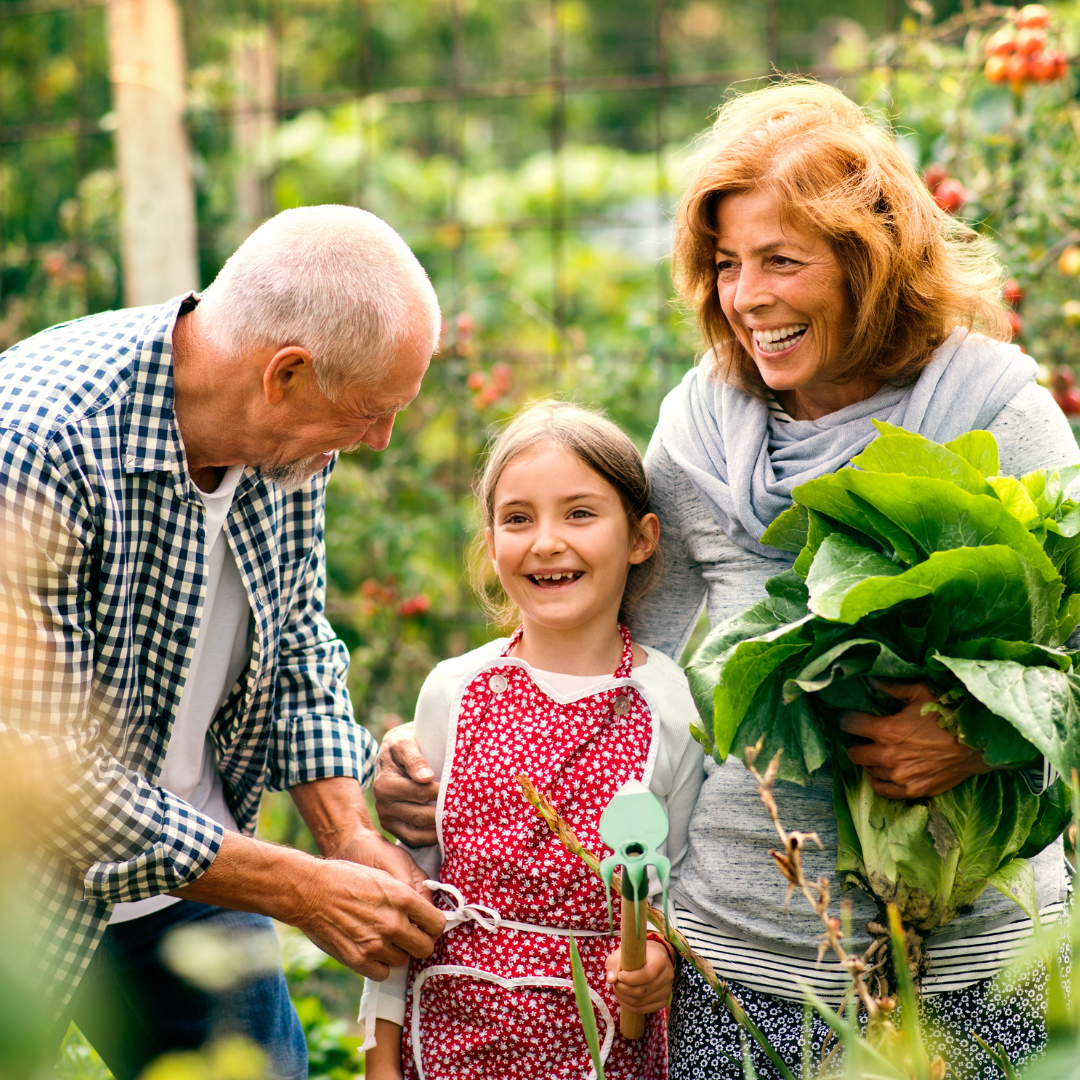
4. Gardening
Gardening is an enjoyable and rewarding activity that can help to relieve stress and connect you with nature.
Whether you have a small balcony or a large yard, gardening can provide a sense of accomplishment and relaxation.
Growing herbs, vegetables, or flowers can be a fun and satisfying way to connect with nature and the cycle of life.
Planting and nurturing seeds or young plants can be a peaceful and meditative activity that helps to calm the mind and reduce stress.
Gardening has many other benefits. It can help improve your physical health by getting you outside, moving your body, and providing fresh and healthy produce.
Gardening can also be a social activity, allowing you to connect with others who share your love of plants and nature. It can be a great way to meet new people and build community.

5. Exercise Outdoors
Exercise is widely recognized as an excellent way to improve overall health and well-being, but did you know that doing it outdoors can provide additional benefits?
Engaging in physical activities such as hiking, biking, or kayaking can be incredibly beneficial, not just for your physical health but for your mental health as well.
One of the primary advantages of outdoor exercise is the opportunity to connect with nature. Research has shown that spending time in natural environments can calm the mind, reduce stress levels, and promote well-being.
The fresh air and natural surroundings can help you feel more relaxed and focused, allowing you to get the most out of your workout.
Another benefit of outdoor exercise is the opportunity to challenge yourself in new ways. Whether hiking up a steep mountain trail or biking along a winding road, outdoor activities can push you out of your comfort zone and help you build resilience and confidence.
These challenges can particularly benefit mental health, requiring focus and perseverance. Outdoor exercise can also provide a welcome break from the monotony of indoor workouts.
Instead of staring at a wall or screen, you can enjoy the changing scenery and soak up the beauty of nature. This can make your activity feel more enjoyable and rewarding, helping you stick with it in the long term.

6. Listen To Nature Sounds
Listening to the sounds of nature can be a great way to reduce stress and promote relaxation. It can help you feel more connected to the natural world and provide a break from the constant stimulation of modern life.
Nature sounds can come in many forms, such as the chirping of birds, the rustling of leaves, the sound of a flowing river or waterfall, or the crashing of waves on the beach.
You can easily access sounds of nature through various apps or websites that offer recordings of these sounds. Alternatively, you can open a window or step outside to listen to the sounds of nature in your surroundings.
Nature sounds can have a positive effect on your mental and physical health. It can lower your heart rate and blood pressure, reduce anxiety and stress, and improve cognitive functioning.

7. Take A Break From Technology
Technology plays a significant role in our lives today, and we often rely on it for communication, work, entertainment, and many other things.
However, the constant use of technology can lead to stress and anxiety, and it's essential to take a break from it occasionally.
Taking a break from technology can incredibly benefit our mental and physical well-being. It allows us to disconnect from the digital world and focus on the present moment.
Spending time in nature can be an excellent way to disconnect from technology and recharge our batteries.
When we disconnect from technology, we can reduce the constant stimulation from emails, notifications, and social media.
This continuous stimulation can lead to a state of hyperarousal, which can lead to stress and anxiety.
By taking a break from technology, we can reduce the amount of stimulation we experience and give our minds a chance to rest and recharge.

8. Practice Forest Bathing
Forest bathing, also known as shinrin-yoku, originated in Japan and involved spending time in a forest environment to improve one's physical and mental health.
The practice is based on the idea that humans have an innate connection with nature and that spending time in a forest environment can positively impact our well-being.
Forest bathing can reduce stress, lower blood pressure, and boost the immune system. The practice involves immersing oneself in the forest environment and focusing on the senses, such as the sights, sounds and smells around you.
Forest bathing requires no special equipment or skills. Simply find a forested area and spend time walking, sitting, or lying down while paying attention to the natural environment. To enhance the experience, you can also engage in other activities, such as yoga or meditation.
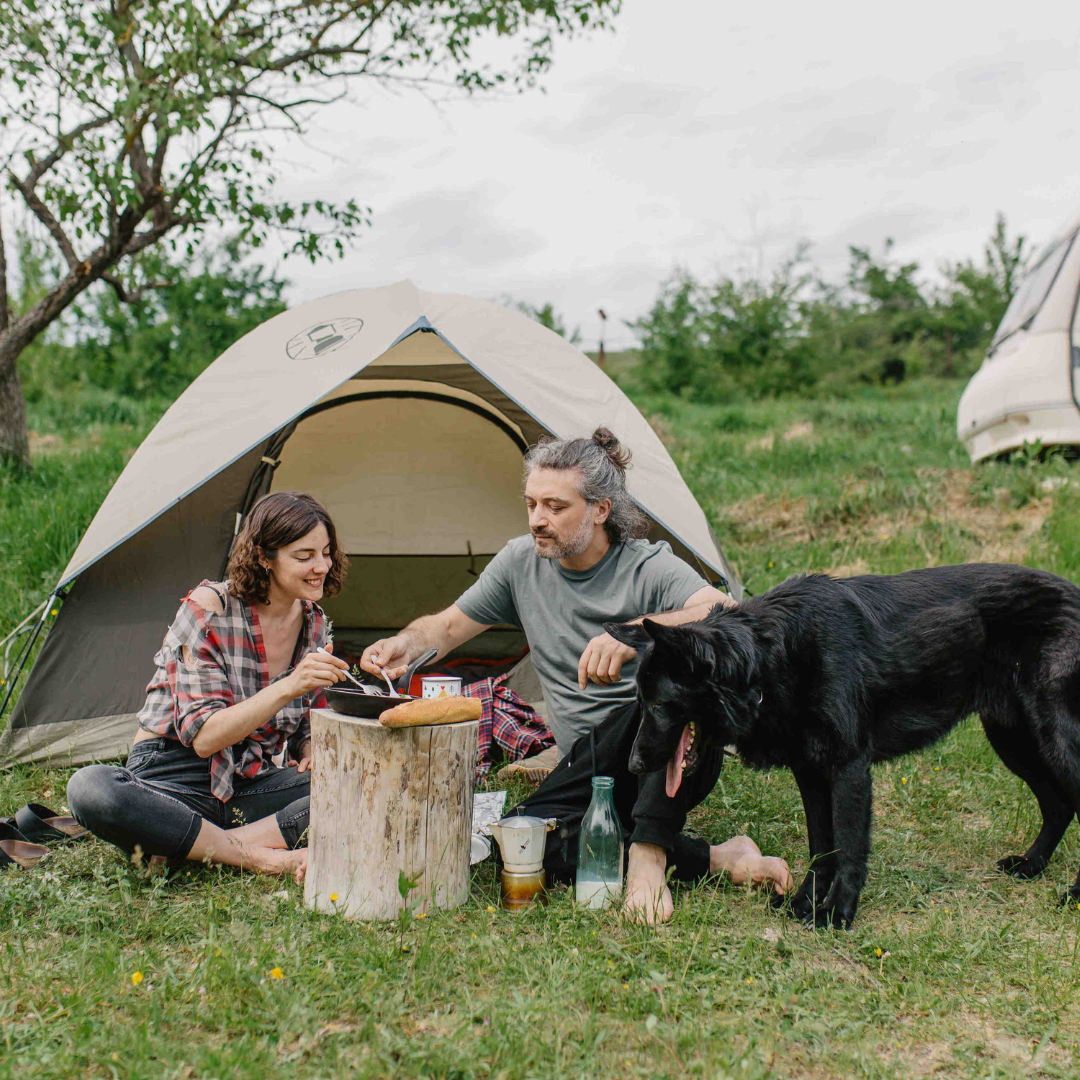
9. Take A Camping Trip
Camping is a popular outdoor activity involving spending time in nature and living outdoors for a short time. It is a great way to escape the stress and demands of daily life and connect with the natural world.
Camping can provide a wide range of benefits to our physical and mental health. Spending time in nature helps to reduce stress levels, improve mood, and promote better sleep.
Additionally, the physical activity involved in camping, such as hiking and fishing, can be great for our overall health and fitness.
To plan a camping trip, you must choose a natural setting you enjoy and find a suitable campsite. Many camps are available, from backcountry wilderness areas to established campgrounds with amenities such as restrooms and showers.
When camping, it is important to be prepared with the necessary equipment, such as a tent, sleeping bag, and cooking supplies. You should also plan for meals and bring enough food and water for your trip.
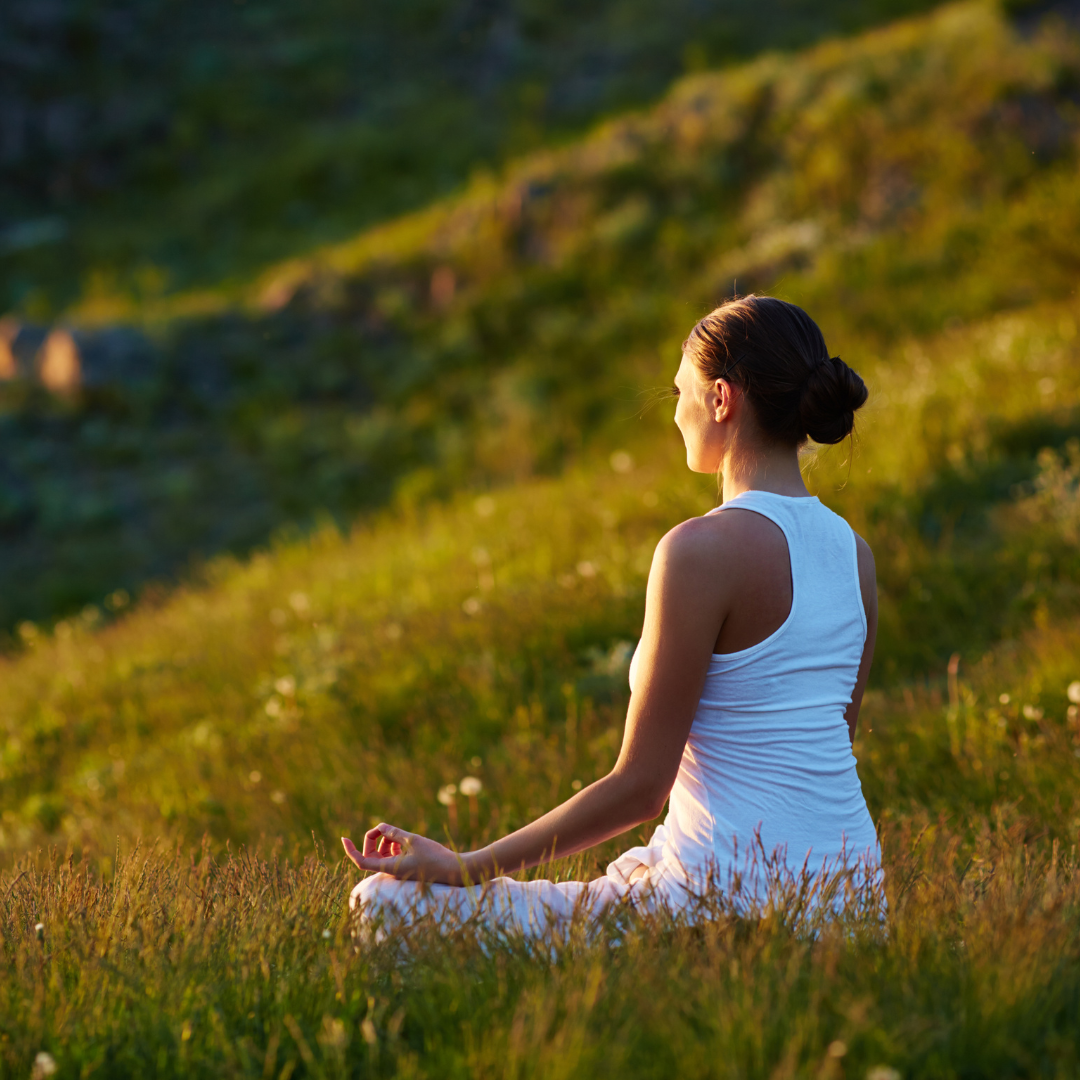
10. Practice Outdoor Yoga
Yoga is an ancient physical, mental, and spiritual discipline rooted in India. It entails a series of positions, breathing exercises, and meditation practices that support spiritual development and physical and mental relaxation.
Practicing yoga outdoors can provide additional benefits. Being in nature can help you feel more connected to the world, enhancing your overall well-being.
Outdoor yoga can also offer the opportunity to enjoy the beauty and tranquillity of natural settings, which can reduce stress levels and improve mood.
To practice yoga outdoors, you must find a quiet and peaceful location, such as a park, beach, or forest.
Look for a spot free from distractions and offer a flat, stable surface to practice. Consider bringing a yoga mat or towel to provide cushioning and grip.
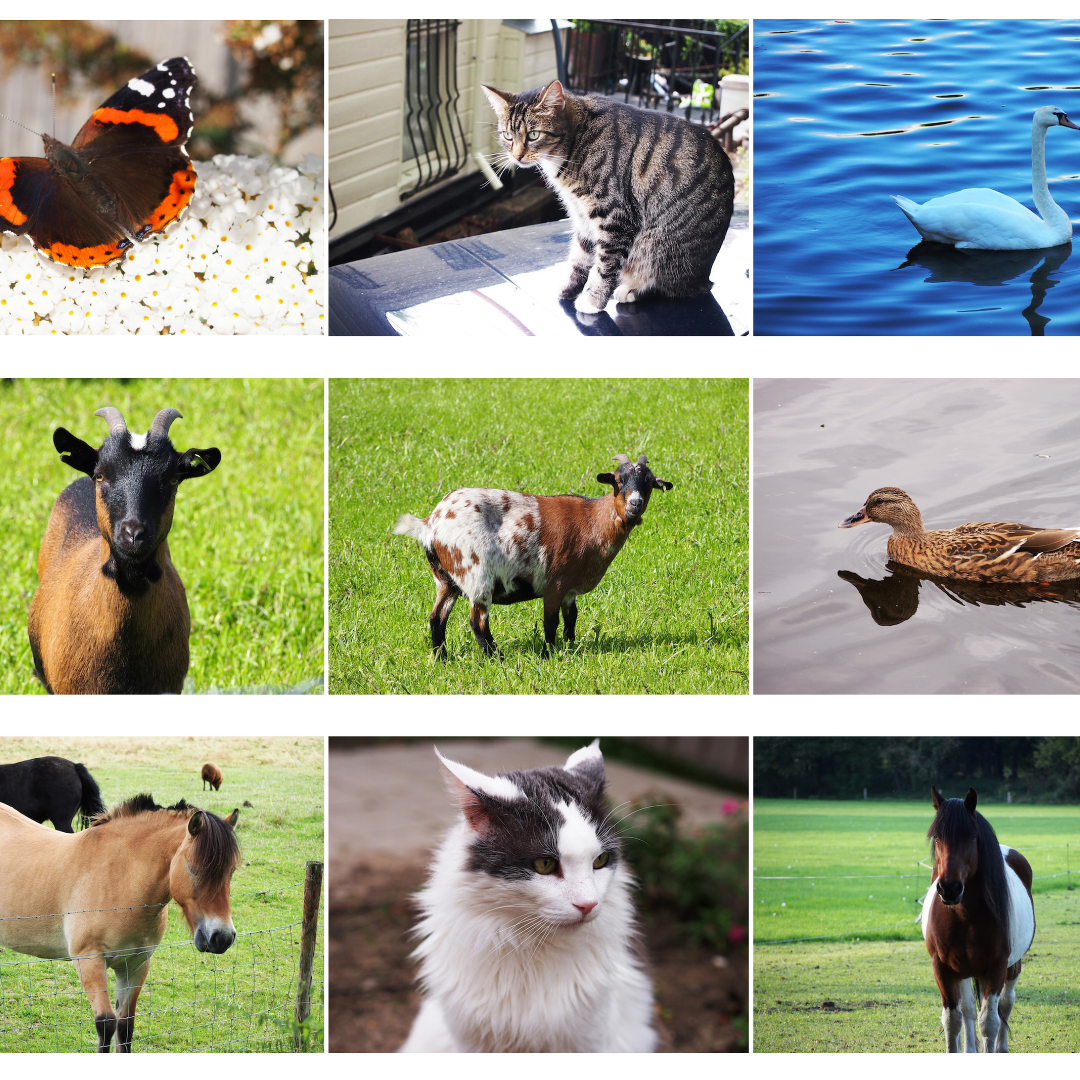
11. Spend Time With Animals
Spending time with animals can positively affect our mental and emotional well-being. Being in the company of pets or farm animals can create a calming and relaxing environment that helps us feel more connected to nature. Animals can also reduce our stress levels by providing a sense of comfort and emotional support.
Animals can release hormones such as oxytocin, which promotes happiness and well-being. Oxytocin can also reduce blood pressure, lower heart rate, and improve physical health.
Whether visiting a petting zoo, volunteering at an animal shelter, or simply spending time with a beloved pet, being around animals can provide a sense of companionship and unconditional love. It can also help us develop empathy and compassion towards other living beings.

12. Nature Art Therapy
Nature art therapy integrates the healing properties of nature with the creative expression of art therapy. This approach can help reduce stress, promote mindfulness, and improve mental health.
Natural materials such as leaves, flowers, and rocks can help individuals connect with nature and their surroundings while creating art.
It allows for a sense of exploration and experimentation and an opportunity for self-reflection and self-expression.
Nature art therapy can be done individually or in a group setting. It does not require any prior artistic skills or abilities. The focus is on the process of creating rather than the end product.
Nature art therapy can help improve mood, reduce anxiety, and enhance overall well-being. It can also be useful for individuals who have experienced trauma or are dealing with emotional or psychological challenges.
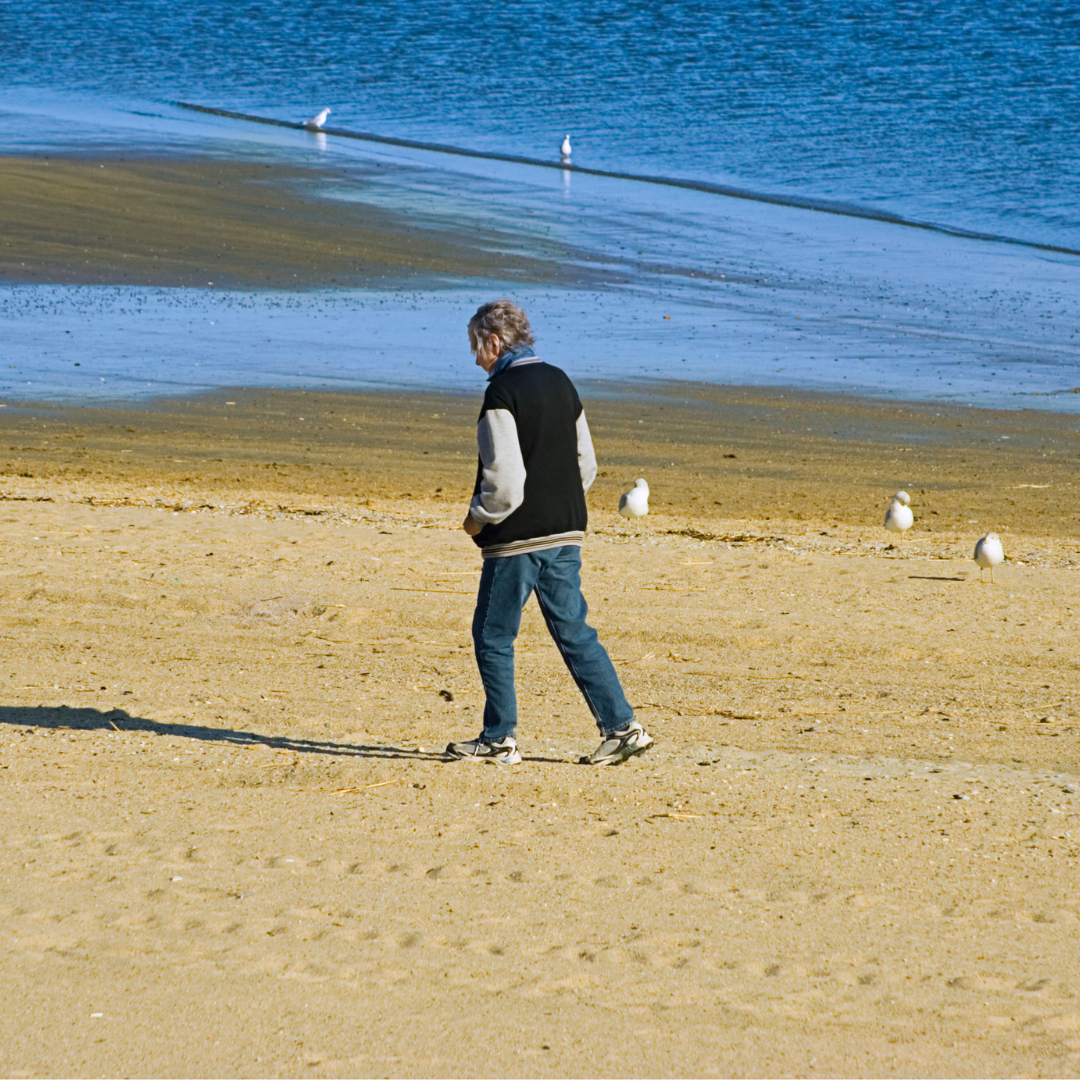
13. Beachcombing
Beachcombing is a relaxing and meditative activity that involves walking along the beach and searching for interesting items such as shells, stones, and driftwood. It's a simple and low-cost activity for people of all ages.
Beachcombing allows one to connect with nature and enjoy the beach's natural beauty. It can be a calming and peaceful experience, allowing you to focus on the present moment and forget about everyday stresses and worries. The repetitive motion of walking along the beach can also be therapeutic and relaxing.
It's important to note that beachcombing should be done responsibly and with consideration for the environment.
Carefully gather your supplies and dispose of any garbage or debris properly. Respect the natural habitats of the beach and the creatures that live there.
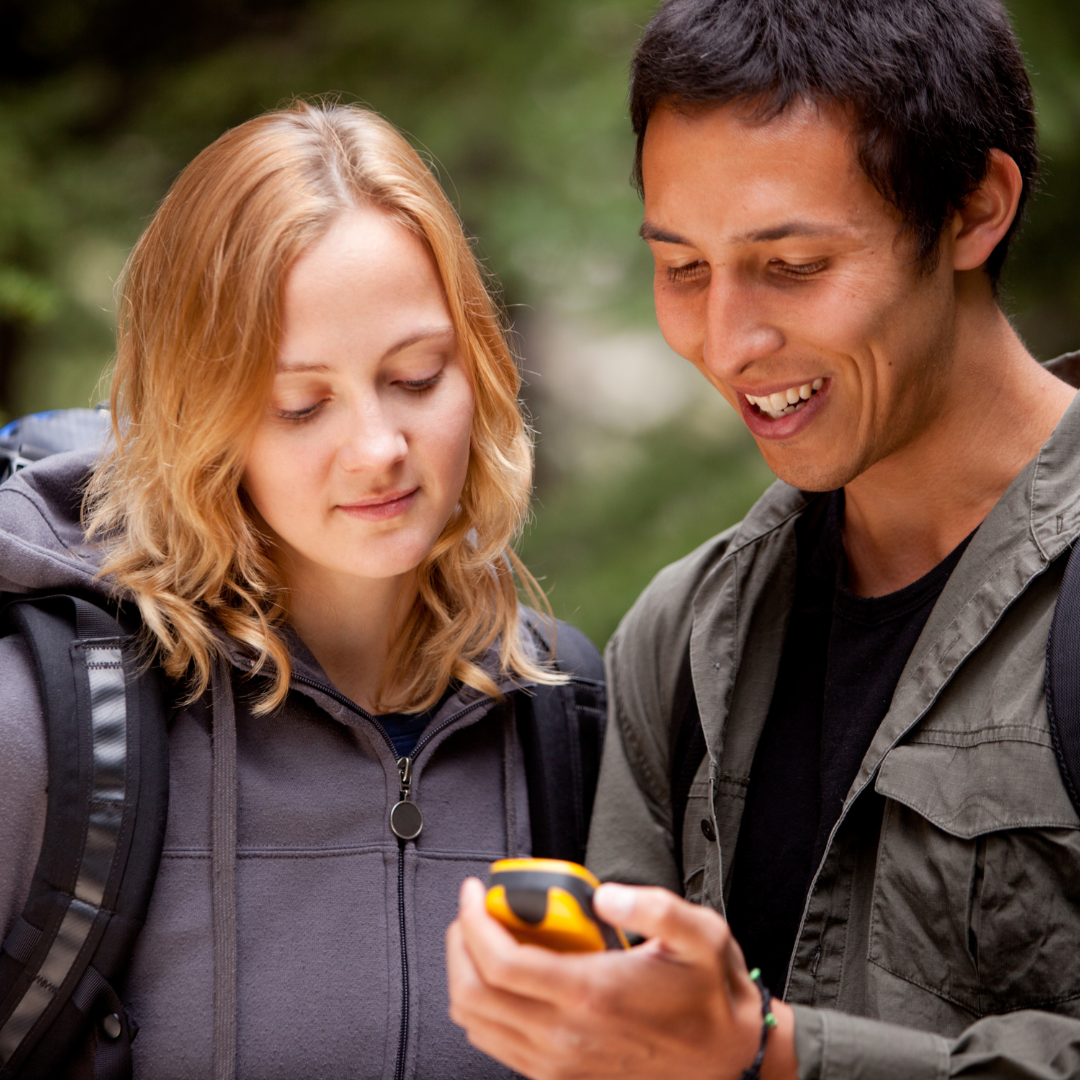
14. Geocaching
Geocaching is an outdoor recreational activity that involves using GPS coordinates to find hidden objects or “caches” in a natural setting.
Participants use a GPS-enabled device or a smartphone app to navigate to specific coordinates, searching for a hidden container or cache.
The caches can be found in various locations, such as parks, forests, and urban areas, and they range in size from small trinkets to larger containers.
Geocaching can be fun and engaging, as it allows participants to explore natural settings and discover new places.
However, it can also be challenging and rewarding, as finding a cache requires problem-solving skills, patience, and persistence.
Participants can also customize their geocaching experience by choosing different types of stores and difficulty levels.
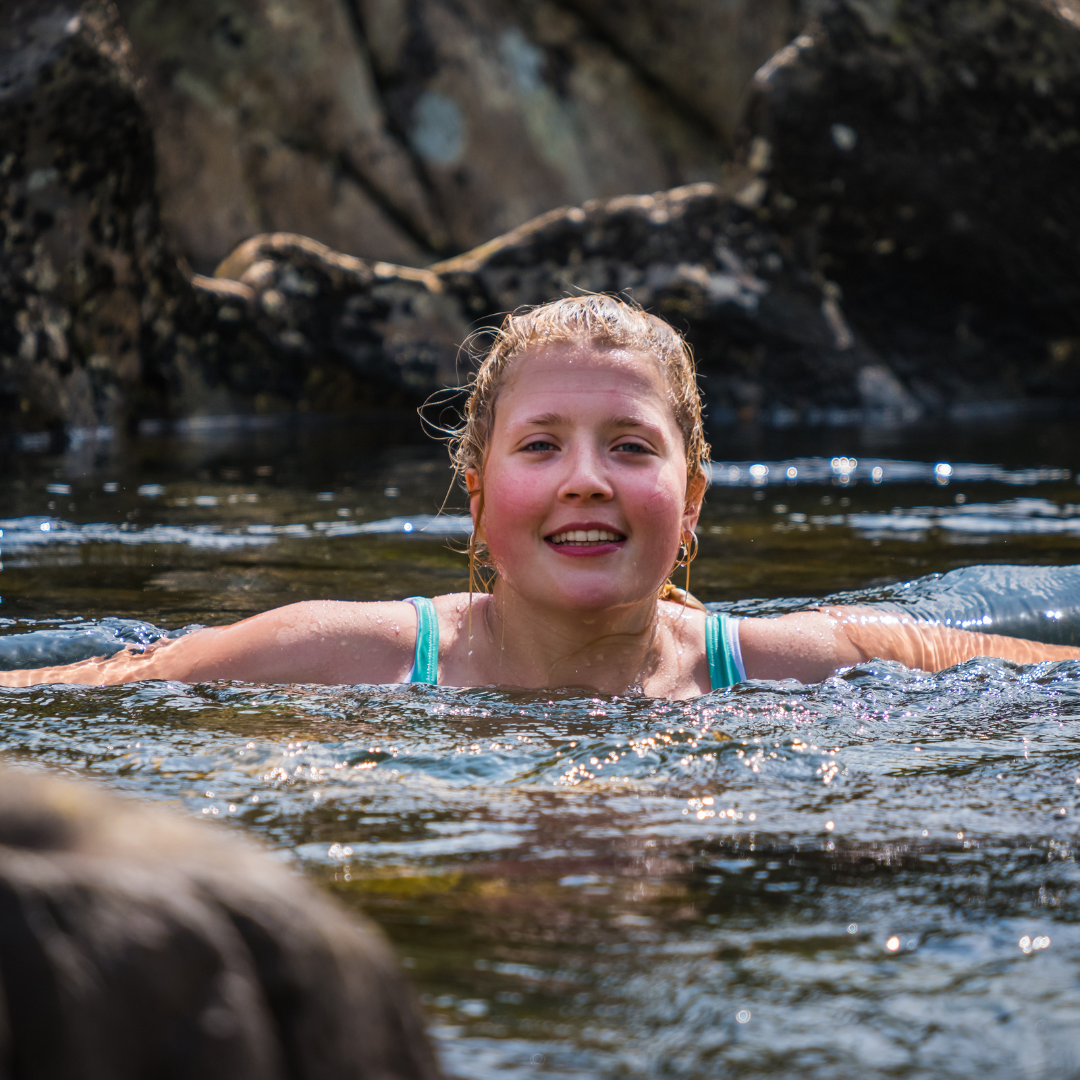
15. Wild Swimming
Wild swimming is a form of outdoor recreation that involves swimming in natural bodies of water such as lakes, rivers, and oceans.
This activity has recently gained popularity as people seek new ways to connect with nature and improve their well-being.
Swimming in cold water has been shown to have several physical and mental health benefits. For example, it can boost the immune system, increase circulation, and reduce inflammation.
Cold-water swimming has also positively affected mental health, reducing stress and improving mood.
The health benefits of wild swimming can also provide a sense of connection to the natural world. It can be a unique way to explore new places and help individuals develop a deeper appreciation for the environment.

16. Nature Journaling
Nature journaling is a practice that involves writing or sketching in a journal while spending time in nature. It's a simple, low-cost activity that people of all ages and skill levels can enjoy.
Nature journaling provides an opportunity to connect with nature and reflect on your experiences in the natural world.
It can be a calming and peaceful experience, allowing you to focus on the present moment and forget about everyday stresses and worries.
Writing or sketching in a journal can also be therapeutic and enable you to express your thoughts and feelings creatively.
Nature journaling can be tried in any natural setting, from a local park to a remote wilderness area.
It's important to bring any necessary supplies, such as a journal, pen, or pencil, and any art supplies you may want.
It's also important to note that nature journaling should be done responsibly and with consideration for the environment. Participants should respect the area's natural habitats and avoid disturbing plants or animals.
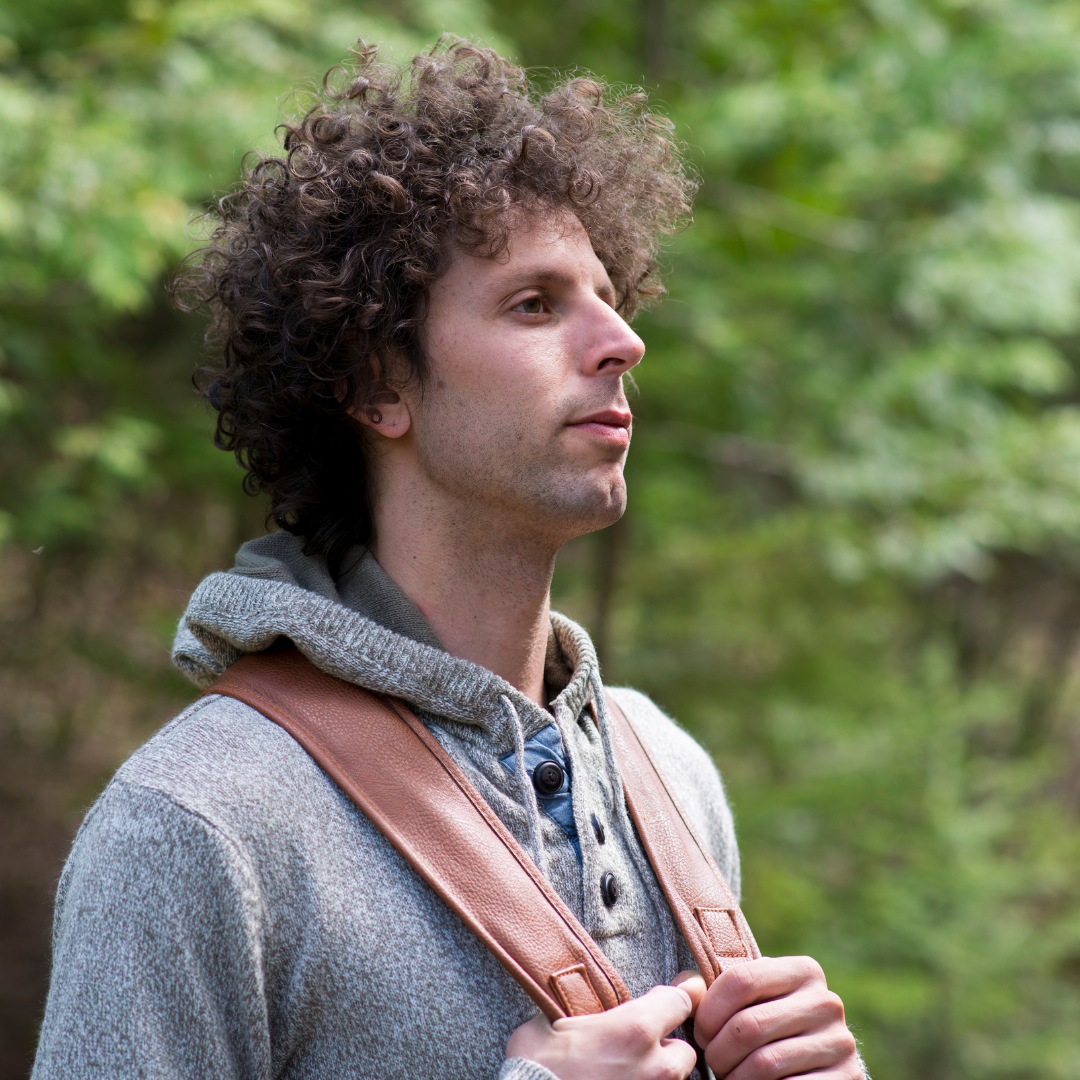
Conclusion
Nature offers numerous benefits to help relieve stress. Some of the best ways to take advantage of these benefits include spending time outdoors, engaging in physical activities like hiking or gardening, practicing mindfulness and meditation in natural environments, and simply taking time to appreciate the beauty of nature.
Incorporating these activities into your routine can improve your mental and physical health and reduce your stress levels naturally and sustainably. Remember to prioritize self-care and make time for nature in your daily life.
I trust you enjoyed this article about the Best Ways To Relieve Stress With Nature. Please stay tuned for more blog posts to come shortly.
JeannetteZ
>>>Please click here to read my all-inclusive article, About The Essential Companion Planting Guide<<<
>>>Please click here to read my all-inclusive article about Lessons That Will Teach You All About Stress<<<
>>>Are you interested in Natural Healing And Stress Relief through Herbs? Please click here for my #1 Recommendation<<<
Your Opinion Is Important To Me
Do you have thoughts, ideas, or questions? I would love to hear from you. Please leave me your questions, experiences, and remarks about the Best Ways To Relieve Stress With Nature in the comments section below. You can also reach me by email at Jeannette@Close-To-Nature.org.
Disclosure
This post may contain affiliate links. I earn from qualifying purchases as an Amazon Associate and other affiliate programs. Please read my full affiliate disclosure.
You might also enjoy these blog posts:
8 Best Tips To Reduce Stress Naturally
9 Best Massages For Stress Relief
What Is A Stress Relief Massage?
8 Best Teas For Anxiety And Stress

